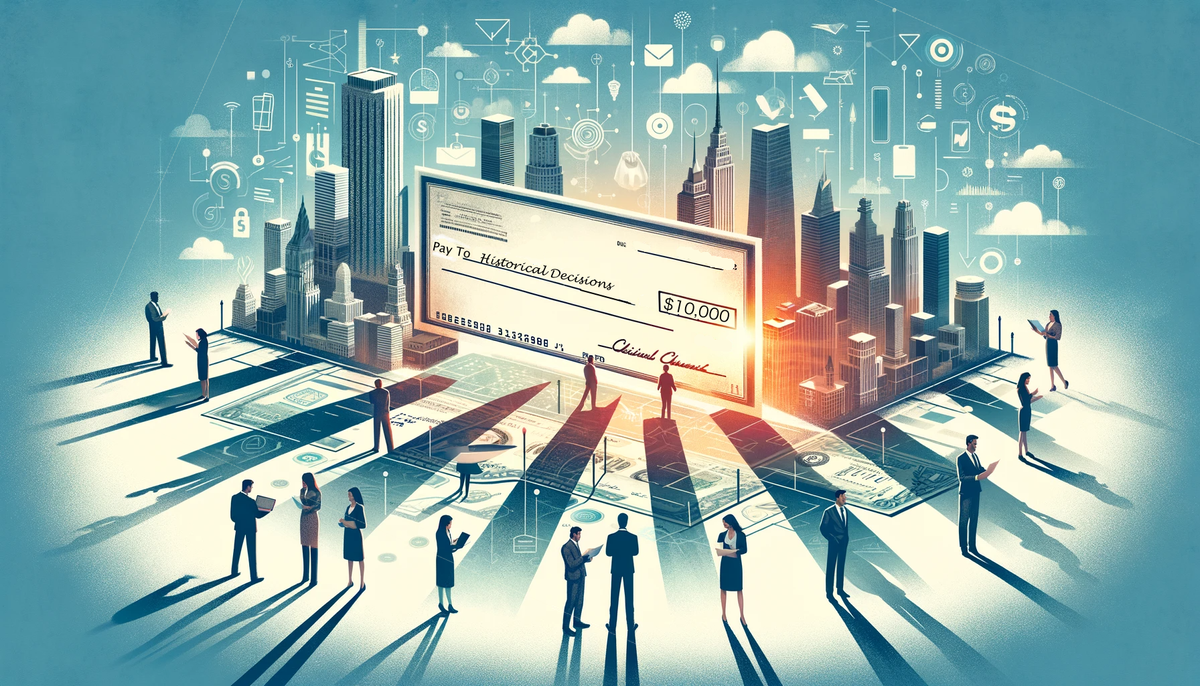
## Metadata
- Author: [[Bits about Money]]
- Full Title: The Long Shadow of Checks
- Category: #articles
- URL: https://www.bitsaboutmoney.com/archive/the-long-shadow-of-checks/
## Highlights
- The earliest checks look like a three-way transaction: buyer of a good or service (who wrote the check), seller (who turned the check into money), and the banker (who facilitated the transaction). ([View Highlight](https://read.readwise.io/read/01hhxkv4ekz1bvfyrngyb6kte5))
- And thus we come to an important fact about the U.S. payments ecosystem: every way of moving money between banks was designed in relation to the capabilities necessary to facilitate nationwide clearing of paper checks. The most common method of interbank payments in the U.S. wears [this history](https://www.nacha.org/content/history-nacha-and-ach-network) in its name: ACH stands for “Automated Clearing House.” ([View Highlight](https://read.readwise.io/read/01hhxkws85vyn1k5hn5v1163x7))
- Checks move the extension of credit (in part!), from the store to the banking system. At the point which you write the check, the grocery has to make a decision whether to release your chicken, with *extremely imperfect* information. Your account may or may not have good funds in it presently; the store cannot know. More importantly, the store cannot know whether your account will have sufficient funds *when the check is presented* a few days in the future. ([View Highlight](https://read.readwise.io/read/01hhxkyr042dag8a4xzy972vr8))
- If you and your grocery store have a disagreement *about a check specifically*, you can go to jail. ([View Highlight](https://read.readwise.io/read/01hhxm159t6nm5jbg2tekx5sr5))
- The crime is sometimes called “uttering”, for charming historical reasons. ([View Highlight](https://read.readwise.io/read/01hhxm19a59961pq90dh50a94m))
- And from this follows an underappreciated consequence of modern financial infrastructure: credit cards and debit transactions make the economy more efficient. One way you can measure that efficiency gain is that their users *rarely go to jail*. Partly that is because you can do a near real-time prediction of whether the transaction has good funds behind it at the point-of-sale. Partly it is because we more fully move credit risk from the grocery store to the bank. ([View Highlight](https://read.readwise.io/read/01hhxm0tvsrw239bx1x2xej5k7))
- Since the standard U.S. bank account is a checking account, *even if it cannot write checks*, it is necessarily a credit product. Banks must *manage* credit risk. This makes opening up standard bank accounts far higher ceremony than it is in many peer nations. You can (easily) be declined services, for example because your previous use of bank accounts landed you in ChexSystems, an industry-wide niche credit reporting agency which basically exists solely to blacklist people from accessing checking accounts in the future. ([View Highlight](https://read.readwise.io/read/01hhxm4830nwy9heks17nwvn3z))